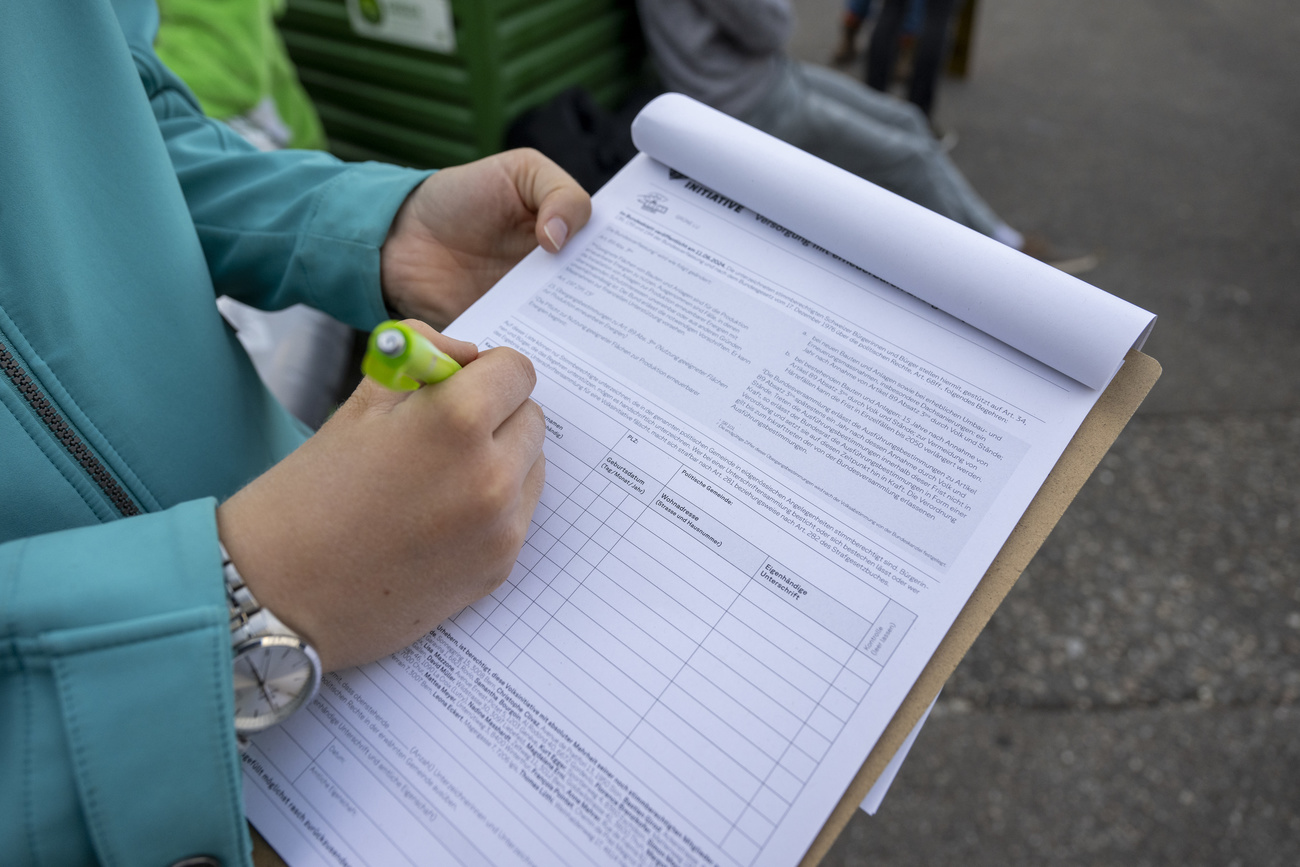
Swiss canton wants to test collection of electronic signatures for initiatives

St Gallen wants to become the first Swiss canton to use electronic signatures (e-collecting) for referendums or initiatives. A government proposal for a pilot project has been put out for consultation.
+ Get the most important news from Switzerland in your inbox
The St Gallen government wants to be the first canton in Switzerland to create the necessary legal basis for this. This will prevent signature forgeries, which have allegedly occurred in various cantons recently.
The electronic signatures would be automatically compared with the voting register. St Gallen State Secretary Benedikt van Spyk explains: “In my view, it is an advantage that you have to identify yourself electronically. A comparison with the voting register checks whether someone is entitled to vote. This does not happen when collecting signatures on the street.”
+ ‘Signatures scam’ reveals cracks in Swiss system
At the same time, it also saves the municipalities effort because the check has already been done, Van Spyk went on: “And data protection is also much better than with a physical collection of signatures.”
Increase the number of signatures?
At the moment, 4,000 signatures are needed for a referendum in canton St Gallen. Van Spyk says: “The question now is whether electronic signatures are easier to collect and whether a higher number of signatures may therefore need to be specified. This question has been discussed time and again. We now need experience to do this.”
The number of signatures required for e-collecting proposals has already been discussed in the St Gallen cantonal parliament. A key question is whether the number of signatures required should not be increased if collection is made easier.
+ Is e-voting making any progress in Switzerland?
The cantonal government proposes a “fixed share solution” which would involve only half of the signatures required for a referendum to be collected electronically. The government could increase the share to a maximum of 75% via a decree.
After seven years, a report on the experiences will also be presented to the cantonal parliament. Legal adjustments could then be proposed there. From spring 2026, the e-collecting platform should be ready for collecting signatures at the cantonal level. Later, this option will also be available for referendums and initiatives at the municipal level.
There are also proposals for e-collecting at the federal level. In mid-September, the Fribourg parliamentarian Gerhard Andrey of the Green Party submitted a motion for a pilot project. The Federal Council has been called upon to initiate a project to prevent counterfeiting and abuse.
Almost all parties support the pilot project, with opposition only from the rightwing Swiss People’s Party. However, it will take time before signatures are no longer collected with pen and paper. As the e-ID will probably not be introduced until 2026, the pilot project will not start until then at the earliest.
Translated from German by DeepL/sb
This news story has been written and carefully fact-checked by an external editorial team. At SWI swissinfo.ch we select the most relevant news for an international audience and use automatic translation tools such as DeepL to translate it into English. Providing you with automatically translated news gives us the time to write more in-depth articles.
If you want to know more about how we work, have a look here, if you want to learn more about how we use technology, click here, and if you have feedback on this news story please write to english@swissinfo.ch.

In compliance with the JTI standards
More: SWI swissinfo.ch certified by the Journalism Trust Initiative











































You can find an overview of ongoing debates with our journalists here . Please join us!
If you want to start a conversation about a topic raised in this article or want to report factual errors, email us at english@swissinfo.ch.